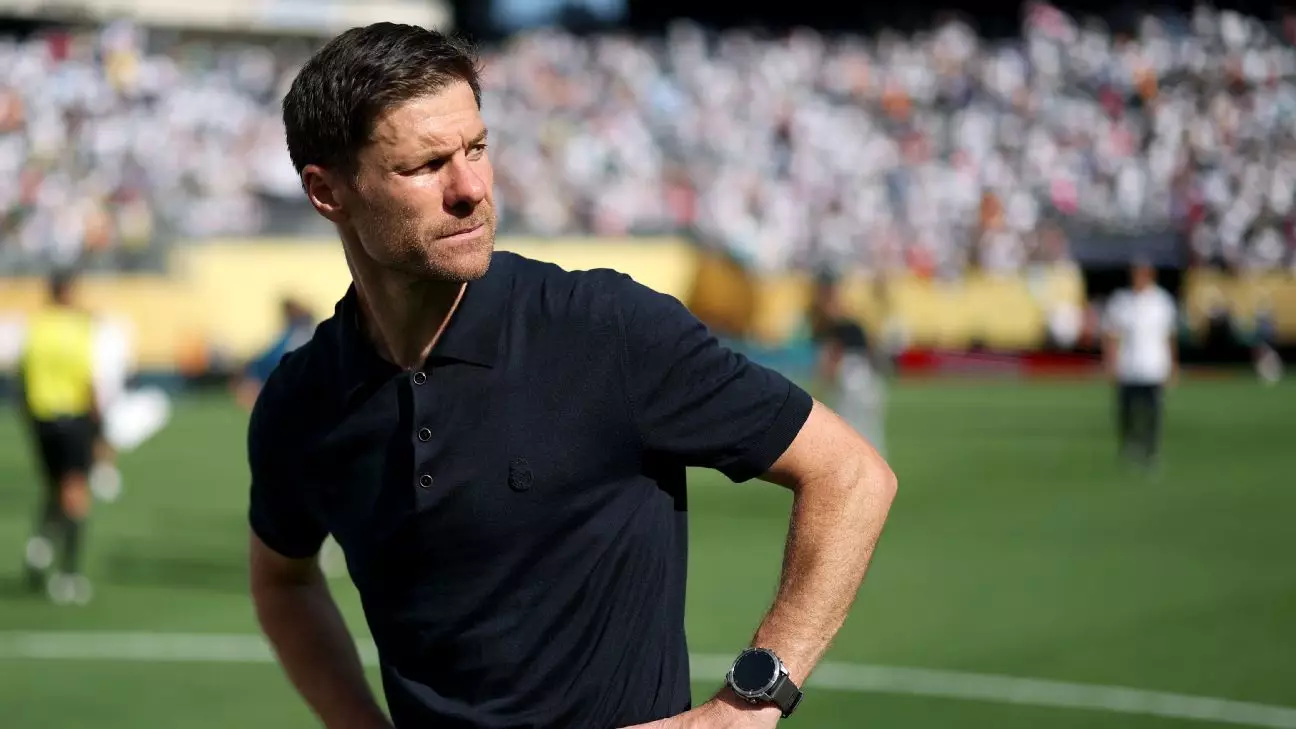Xabi Alonso’s return to Real Madrid represents more than just a managerial change; it symbolizes a new chapter filled with ambitions for excellence and a fearless approach to leadership. Unlike his predecessor, Carlo Ancelotti, whose tenure was marked by stability and patience, Alonso is poised to bring a transformative edge rooted in assertiveness. His stint at Bayer Leverkusen showcased a coach unafraid to make difficult decisions, and that same mentality promises to ripple through his new role at Madrid. This pivotal shift underscores a broader philosophy: top-tier clubs demand not only tactical clarity but also a managerial willingness to shake up the status quo and deliver tangible results swiftly.
Alonso’s reputation as a player was built on intelligence, composure, and relentless pursuit of excellence—traits that now define his coaching ethos. It’s clear he understands that to climb back into the realm of silverware, Madrid must embrace radical shifts, including squad rotations and a clear hierarchy of performance. His previous experiences affirm that standing still is not an option for a club with Madrid’s standards; instead, decisive action will be necessary to reignite their winning culture. Such boldness is crucial because, in the relentless world of professional football, half-measures only breed mediocrity.
The Challenge of Integrating Star Power
Madrid’s squad is arguably one of the most talented in world football, boasting stars like Kylian Mbappé, Vinícius Júnior, and emerging talents. Yet, amid this wealth of individual brilliance lies a challenge: creating harmony and coherence within the team’s attacking and defensive units. Gareth Bale’s insights suggest that Alonso’s past success, particularly at Leverkusen, was driven by his ability to manage ego and expectation—traits that will be vital as he attempts to blend superstars.
The presence of Mbappé, with his goal-scoring prowess, complicates this dynamic. Bale emphasizes that the French forward is still prolific, but Madrid’s recent failures—even with such a top scorer—highlight the importance of tactical cohesion beyond individual stats. For Alonso, it’s not about sidelining talent but channeling it into a collective effort that prioritizes the team’s overall success. His challenge lies in striking a delicate balance: motivating stars like Mbappé and Vinícius Jr., while establishing a system where everyone understands their role.
The impending transfer window will be a litmus test for Alonso’s authority. Whether Madrid will actively pursue more signings to support their philosophy or rely on current assets remains to be seen. The club has made notable acquisitions like Trent Alexander-Arnold, signaling intent, but ultimately, Alonso’s leadership will be defined by his ability to foster unity without diluting individual brilliance.
From Player Acrobatics to Managerial Precision
Alonso’s journey from a World Cup-winning midfielder to a burgeoning managerial talent is a testament to his deep footballing intellect. Bale’s commendation of Alonso’s meticulous preparation and intense work ethic as a player underscores why many see him as a future coaching superstar. His devotion to understanding every nuance of the game informs his approach to team management—meticulous, demanding, and strategic.
His stint at Leverkusen demonstrated that he’s not afraid to make tough decisions, including dropping underperforming players and pushing for high standards. This mindset will be integral at Madrid, where ambition is intertwined with ruthless competition. Alonso’s clarity about expectations and his focus on implementing a disciplined, pressing style of play could be the catalyst Madrid needs to revive their winning mentality. This isn’t just about tactics but about instilling a culture where success is non-negotiable, and every player is accountable.
His relationship with veteran players like Luka Modrić, who recently left for AC Milan, exemplifies the importance of legacy and mentorship. Alonso understands that experience alone isn’t sufficient; it must be harnessed and inspired to elevate the entire squad. His success will depend on how effectively he leverages his footballing wisdom to cultivate a cohesive, hungry team capable of reclaiming their competitive dominance.
Carving a New Dawn for Madrid
The club’s recent disappointing performances have cast a spotlight on their turbulent season—marked by the absence of trophies and a stinging loss to PSG. These setbacks serve as a stark reminder that Madrid’s pool of talent, while undeniable, isn’t enough without effective leadership and a unifying strategy. Alonso’s appointment offers a rare chance to reset, emphasizing resilience, tactical clarity, and a fiercely competitive spirit.
Signings like Alexander-Arnold and Huijsen reveal Madrid’s intent to bolster their squad, but the true transformation will come from within the team environment Alonso constructs. His potential to decisively overhaul the squad’s tactical identity—shifting towards a high-pressing, possession-based approach—is what could turn their fortunes around.
A coach with a clear vision and a fearless attitude towards change is precisely what Madrid needs in this transitional phase. Alonso’s challenge is to marry his strategic ambitions with the club’s relentless pursuit of glory. If he succeeds, he will not only restore Madrid’s winning culture but also reshape their identity for years to come.
—
Note: This article was critically crafted to provide an original perspective, diverging from the original structure and tone, emphasizing analysis, opinion, and insights into Xabi Alonso’s managerial prospects and the future of Real Madrid.

Leave a Reply